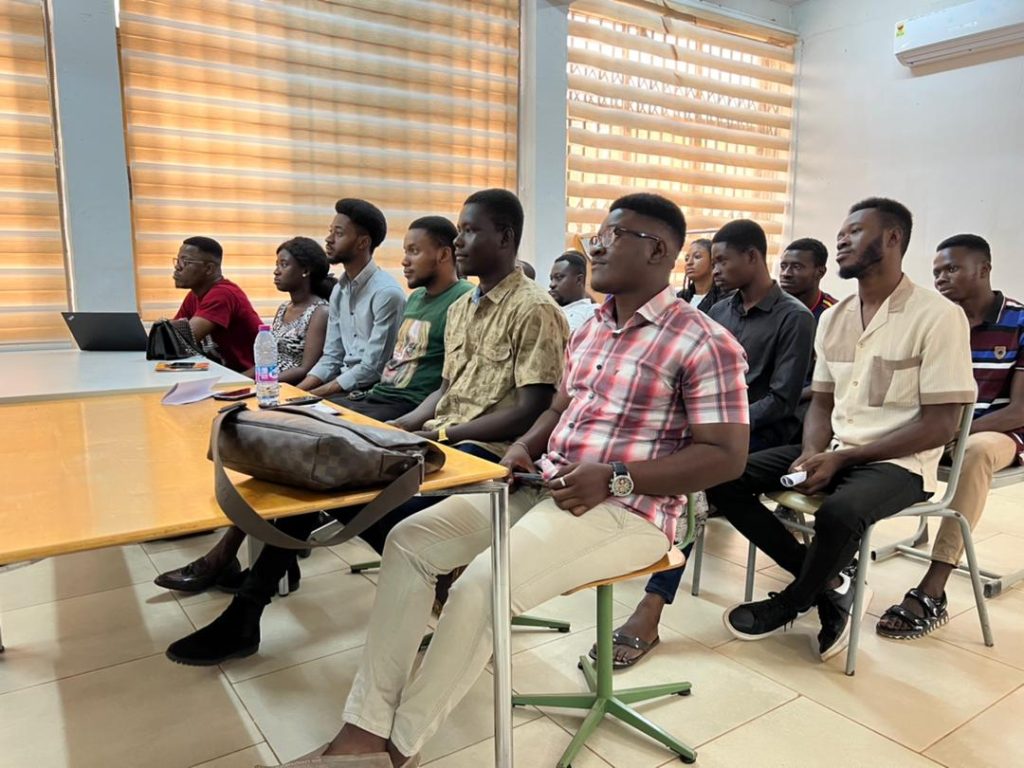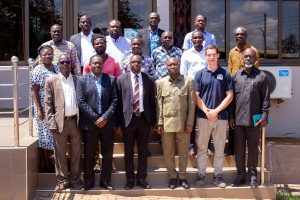
Within the framework of enhancing healthy living in rural areas, the Department of Biological Sciences of the University of Energy and Natural Resources (UENR) on Wednesday held a seminar to disseminate findings on the research topic “Prevalence, intensity and Risk Factors of Schistosomiasis and Soil-transmitted Helminths (STH) in Rural, Hard-to-Reach Riverine Communities in the Bono of Ghana”
Presenting on the topic, Miss Rachel Kramer from Kalamazoo College in Michigan, USA who is a research intern at the Centre for Research in Applied Biology (CeRAB) of UENR referred to World Health Organization’s (WHO) report which indicated that Schistosomiasis (Bilharzia) is an acute and chronic neglected tropical disease in rural communities with 221 million people affected worldwide. She further disclosed that 9 out of 10 infected people live in Africa with the most affected being women, children, fishermen and manual workers.

Justifying the need for her study, Miss Kramer underscored that Ghana has inadequate national programmes for STH and schisto control with few places that administer Praziquantel (Schisto treatment) which is not even administered on a regular basis. “We need these epidemiological studies to show the true burden and risk factors that help inform policy on developmental control strategy”, she said. Data gathered in her research showed that in 9 study communities, the STH prevalence rates of A. Lumbricoides stands at 5.9%, Trichuris Trichiura (human whipworm) at 1.2% and Ancyclostoma duodenale/Necator americanus (intestinal hookworm) at 0.6%, which confirms the low number of people who have already taken the Praziquantel.
Miss Kramer recommended that Ghana Health Service would have to step up prevention and treatment programmes in the affected communities. She also mentioned the need for her Institution (Kalamazoo College) and UENR to embark on exchange programmes to enable researchers in both institutions to take the research further. Some of the communities where the research was conducted include Atronie, Antwikrom, Branam, Otukrom, Kyeredua, Kyirimogya, State Farms and Mamprusi.
The Dean — School of Sciences, Prof. Samuel Fosu Gyasi the Head of the Department of Biological Sciences, Dr. Kenneth Bentum Otabil, staff at CERAB and the Department as well as students attended the seminar. In his remarks, the Head of the Department said the department would continue to roll out a series of seminars to further propagate their research findings for Institutions and public consumption.

The Research is in collaboration with CeRAB, NeTroDis Research Group, Ghana Health Service and the Bono Regional Hospital in Sunyani. At the end of the research, CeRAB and the NeTroDis Research Group, will further develop a policy brief on the findings and recommendations from the project for institutional use.







